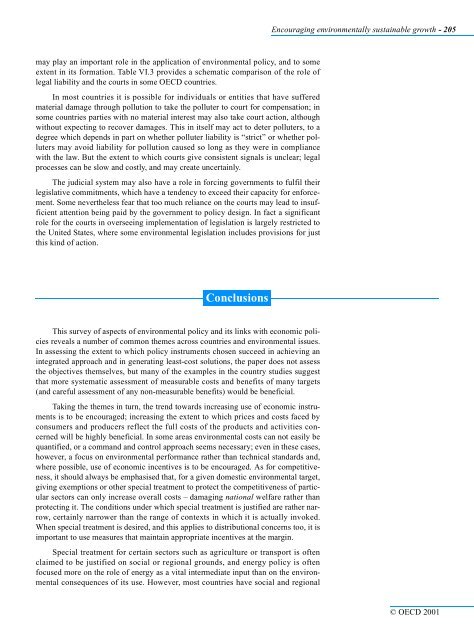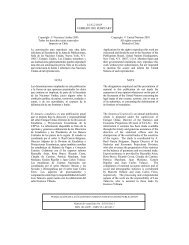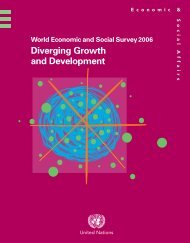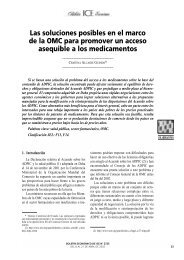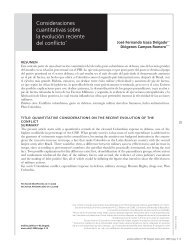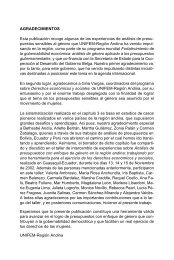OECD Economic Outlook 69 - Biblioteca Hegoa
OECD Economic Outlook 69 - Biblioteca Hegoa
OECD Economic Outlook 69 - Biblioteca Hegoa
Create successful ePaper yourself
Turn your PDF publications into a flip-book with our unique Google optimized e-Paper software.
may play an important role in the application of environmental policy, and to some<br />
extent in its formation. Table VI.3 provides a schematic comparison of the role of<br />
legal liability and the courts in some <strong>OECD</strong> countries.<br />
In most countries it is possible for individuals or entities that have suffered<br />
material damage through pollution to take the polluter to court for compensation; in<br />
some countries parties with no material interest may also take court action, although<br />
without expecting to recover damages. This in itself may act to deter polluters, to a<br />
degree which depends in part on whether polluter liability is “strict” or whether polluters<br />
may avoid liability for pollution caused so long as they were in compliance<br />
with the law. But the extent to which courts give consistent signals is unclear; legal<br />
processes can be slow and costly, and may create uncertainly.<br />
The judicial system may also have a role in forcing governments to fulfil their<br />
legislative commitments, which have a tendency to exceed their capacity for enforcement.<br />
Some nevertheless fear that too much reliance on the courts may lead to insufficient<br />
attention being paid by the government to policy design. In fact a significant<br />
role for the courts in overseeing implementation of legislation is largely restricted to<br />
the United States, where some environmental legislation includes provisions for just<br />
this kind of action.<br />
Conclusions<br />
This survey of aspects of environmental policy and its links with economic policies<br />
reveals a number of common themes across countries and environmental issues.<br />
In assessing the extent to which policy instruments chosen succeed in achieving an<br />
integrated approach and in generating least-cost solutions, the paper does not assess<br />
the objectives themselves, but many of the examples in the country studies suggest<br />
that more systematic assessment of measurable costs and benefits of many targets<br />
(and careful assessment of any non-measurable benefits) would be beneficial.<br />
Taking the themes in turn, the trend towards increasing use of economic instruments<br />
is to be encouraged; increasing the extent to which prices and costs faced by<br />
consumers and producers reflect the full costs of the products and activities concerned<br />
will be highly beneficial. In some areas environmental costs can not easily be<br />
quantified, or a command and control approach seems necessary; even in these cases,<br />
however, a focus on environmental performance rather than technical standards and,<br />
where possible, use of economic incentives is to be encouraged. As for competitiveness,<br />
it should always be emphasised that, for a given domestic environmental target,<br />
giving exemptions or other special treatment to protect the competitiveness of particular<br />
sectors can only increase overall costs – damaging national welfare rather than<br />
protecting it. The conditions under which special treatment is justified are rather narrow,<br />
certainly narrower than the range of contexts in which it is actually invoked.<br />
When special treatment is desired, and this applies to distributional concerns too, it is<br />
important to use measures that maintain appropriate incentives at the margin.<br />
Special treatment for certain sectors such as agriculture or transport is often<br />
claimed to be justified on social or regional grounds, and energy policy is often<br />
focused more on the role of energy as a vital intermediate input than on the environmental<br />
consequences of its use. However, most countries have social and regional<br />
Encouraging environmentally sustainable growth - 205<br />
© <strong>OECD</strong> 2001


